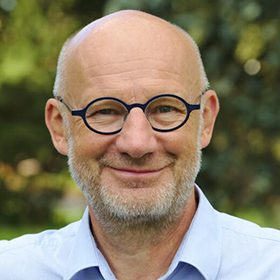
Olli Kangas
Olli Kangas is Director of Equal Society research programme at the Academy of Finland and Professor of Practice at the Department of Social Research, University of Turku. Previously he has been the Director of Governmental Relations (2015-2018) and Research Director (2007-2014) at the Social Insurance Institution of Finland. He has worked as Olof Palme Professor at the Uppsala University; H.C. Andersen Professor at the University of Southern Denmark, Professor at the Danish National Institute for Social Research (2004-2007), Professor in Social Policy, University of Turku (1994-2003) and research fellow at the Academy of Finland 1987-1993. His research interests revolve around comparative analysis of social policy systems, their causes and consequences in terms of macro-economy, income distribution and legitimacy of social institutions. Currently he is the leader of the research group evaluating the Finnish basic income experiment.
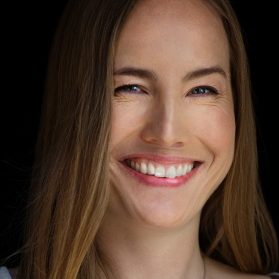
Anu Partanen
Anu Partanen is the author of “The Nordic Theory of Everything: In Search of a Better Life.” After working as a journalist in Finland for many years she moved to the United States where she was an independent writer for more than a decade. Her work has appeared in The New York Times, The Los Angeles Times and The Atlantic. She has been a regular commentator on the BBC and has worked at Fortune Magazine as a visiting reporter through the Innovation Journalism Fellowship at Stanford University. In Finland she has held many positions ranging from managing editor to columnist, features writer to news reporter, lecturer to on-air commentator. Currently she works as director at Nordic West Office, a consultancy based in Helsinki, Finland.
Her book “The Nordic Theory of Everything” compares everyday life, social structures, and the ideas of freedom and independence in the United States and in the Nordic region.
Photo: Kristiina Wilson
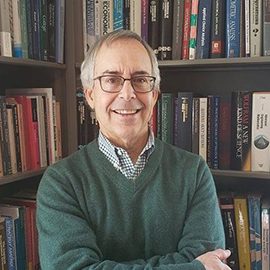
Thomas A. DiPrete
Thomas A. DiPrete is Giddings Professor of Sociology, co-director of the Institute for Social and Economic Research and Policy (ISERP) at Columbia University, and co-director of the Center for the Study of Wealth and Inequality at Columbia. DiPrete holds a B.S. degree from the Massachusetts Institute of Technology and a Ph.D. from Columbia. He has been on the faculty of the University of Chicago, Duke University, and the University of Wisconsin–Madison as well as Columbia. He has held research appointments at the Max Planck Institute for Human Development in Berlin, the Social Science Research Center – Berlin, the German Institute for Economic Research in Berlin, the VU University Amsterdam, the Netherlands Institute for Advanced Study in the
Humanities and Social Sciences, the University of Amsterdam, and, most recently (as of the spring of 2020), Sciences Po.
DiPrete’s recent research focuses on the socioeconomic life course including educational outcomes, particularly as they differ for males and females, and on the school-to-work transition with specific attention to the issue of how educational and labor market institutions affect the quality of linkage between school credentials and occupations and the consequences of linkage structure and individual match quality for career outcomes. His interests in inequality extend to the managerial and executive labor market, where he has recently conducted several studies of how rent-capture gets built into executive compensation via biases in the benchmarking process that American corporations use to determine their compensation for executives. His studies of the structure and consequences of school to work linkage currently involve the U.S., the countries of the European Union, Israel, Australia, and Brazil.
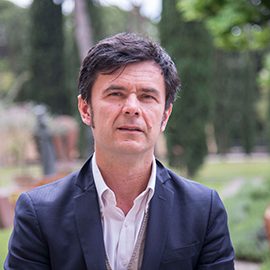
Fabrizio Bernardi
Fabrizio Bernardi is full professor of Sociology at the European University Institute in Florence and at the National Distance Education University (UNED, Madrid), and chair of the European Consortium for Social Research. He is also a founding member and co-director of the Comparative Life Course and Inequality Research Centre at the European University Institute. His most recent publications deal with educational inequalities, compensatory advantage and the consequences of parental separation for children's educational outcomes. He has been awarded the "2017 RC28 Significant Scholarship Award" prize for his article "Compensatory Advantage as a Mechanism of Educational Inequality: published in Sociology of Education.
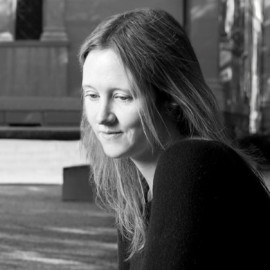
Michelle V. Jackson
I am an Assistant Professor in the Department of Sociology, Stanford University. My main research interests lie in the sociology of education and social inequality, and I focus on how it is that social inequality is produced and reproduced by social institutions. I place institutional constraints and incentives at the center of my understanding of intergenerational inequality.
Website: https://www.mivich.com/
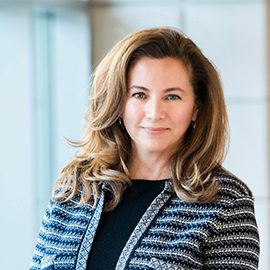
Ariel Kalil
Ariel Kalil is a professor at the University of Chicago Harris School of Public Policy. At Harris, she directs the Center for Human Potential and Public Policy and co-directs the Behavioral Insights and Parenting Lab. She also holds appointments as an adjunct professor in the Norwegian School of Economics in Bergen, Norway and in the School of Business Administration at the University of Stavanger, Norway. She is a developmental psychologist who studies economic conditions, parenting, and child development. Her current research examines the historical evolution of income-based gaps in parenting behavior and children’s cognitive and non-cognitive skills. In addition, at the Behavioral Insights and Parenting Lab, she is leading a variety of field experiments designed to strengthen parental engagement and child development in low-income families using tools drawn from behavioral economics and neuroscience.
Kalil received her PhD in developmental psychology from the University of Michigan.

